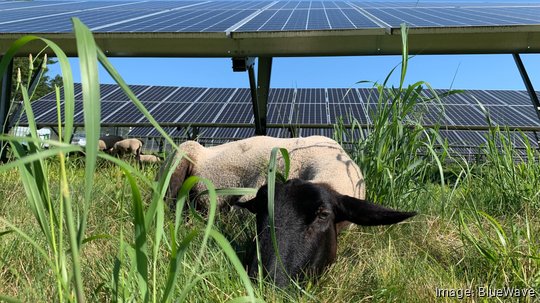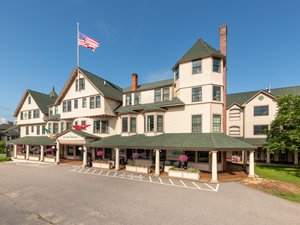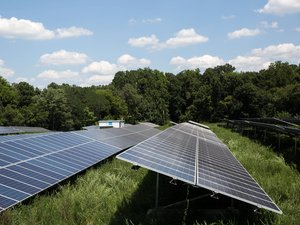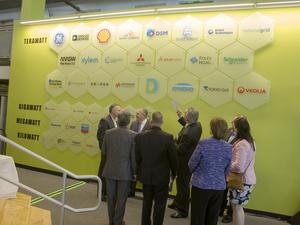
Boston-based BlueWave has been committed to environmental protection and social responsibility since its inception over 10 years ago.
But its recent conversion to a public benefit corporation, and its recertification as a B Corp, officially puts those goals on the same plane as making a profit.
The B Certification is an independent designation from B Lab that companies apply for directly. For a clean energy company like BlueWave, it signals the company's values to landowners and farmers who are impacted by land-use of the solar industry, clean energy policy makers, investors, and potential employees.
At BlueWave, being a B Corp was a bit of a no-brainer, said Mike Marsch, the company’s chief development officer. BlueWave first earned the designation in 2017. Companies need to be recertified every three years, and amid this round’s process, it also became a Public Benefit Corporation, which adds legalities the company has to abide by related to social and public good.
“Being legally organized as a public benefit company allows us to actually put language in the charter of the company that says we exist not just to support investors, but also the community,” said Marsch.
The PBC designation in tandem with B Crop certification means every aspect of the company must be in line with its professed corporate values. That includes the carbon footprint of operations, contract terms with vendors, governance structures within the company, and diversity, equity, and inclusion initiatives.
Marsch said the traditional energy system has served different social groups inequitably, and has leeched resources, particularly land from disadvantaged groups.
“We’re trying to do it better with this energy system than the legacy system,” he said.
As a renewable energy company, it’s especially important to have these environmental and social commitments, Marsch said. On the back of federal legislation and infrastructure bills, the industry is booming.
“It's going mainstream. It's exploding,” Marsch said.
As an established company in the industry, BlueWave wants to use its reputation and experience to set the tone for new companies entering the fold. Of particular concern is ensuring that land used for solar energy can serve other purposes, too, such as continuing to be used as farmland.
“Not to be self-impressed, but we’re trying to set an example,” Marsch said. BlueWave wants to see the industry take off, he said, but if more companies jump at every opportunity to use land for solar and beyond, it will cause harm. The firm wants its commitments to show in the way it does business.
The bar to B Corp certification has only risen in the years that BlueWave has been one, said Marsch, as its meaning as a signifier of companies values becomes more important in the business world. In Greater Boston, 44 companies are B Corps, according to B Local Boston.
“There’s a very real world benefit of being able to clearly communicate this is what we stand for this is how we run our business,” Marsch said.
BlueWave has about 100 employees, more than 80 of whom work from the firm’s Boston office.








